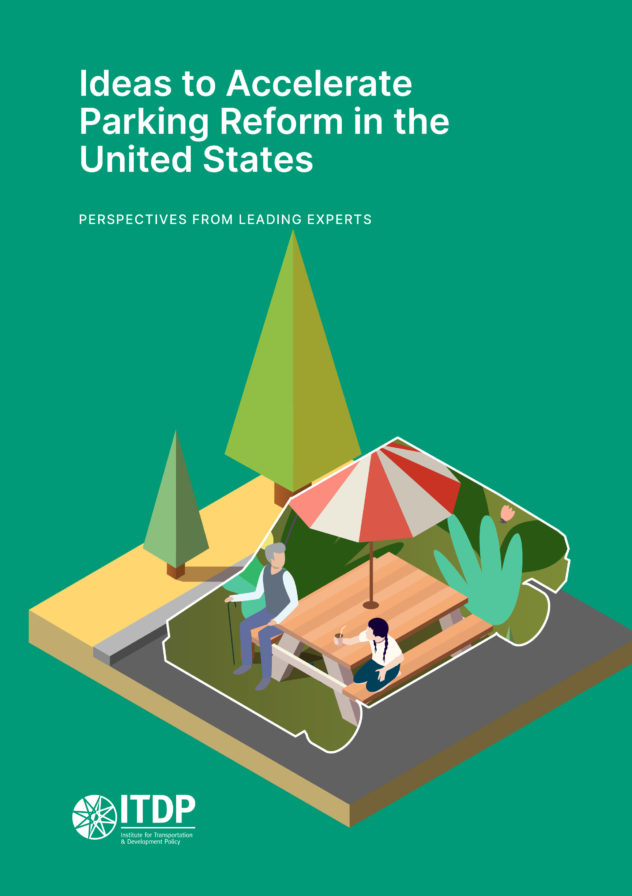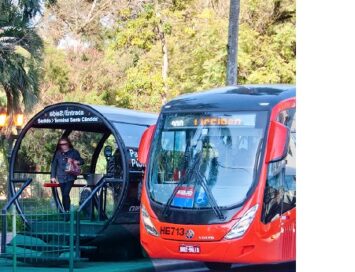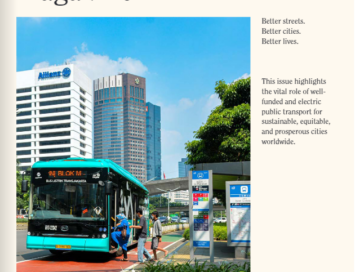Ideas to Accelerate Parking Reform in the United States
All car trips begin and end in a parking space. Prioritizing better use of space dedicated to parking for cars is critical to reducing greenhouse gas emissions from cities, making these cities more livable and equitable, a fact that leading urban practitioners and researchers have long recognized. While plentiful parking encourages people to drive, well-managed parking can support walking, biking, and public transit use. Thousands of acres of land dedicated to parking in US cities could be used for other purposes such as housing, parks, supporting short distance trips, or improved bus service.
This report looks at parking through a campaign filter, thinking about opportunities and threats, strategy and tactics, decision points and trade-offs. The recommendations focus on helping cities make progress given that local municipalities hold much of the power for parking reform. The historic and systemic inequality and racism that weave throughout transportation and land use extends to the world of parking. Parking reformers must be aware of the tensions and the work to center equity in process, policy, and programs by finding new allies, listening carefully, developing better data, and honoring lived experiences.




